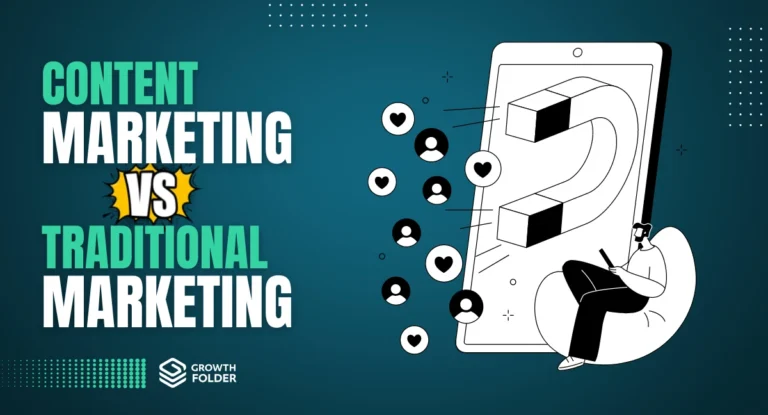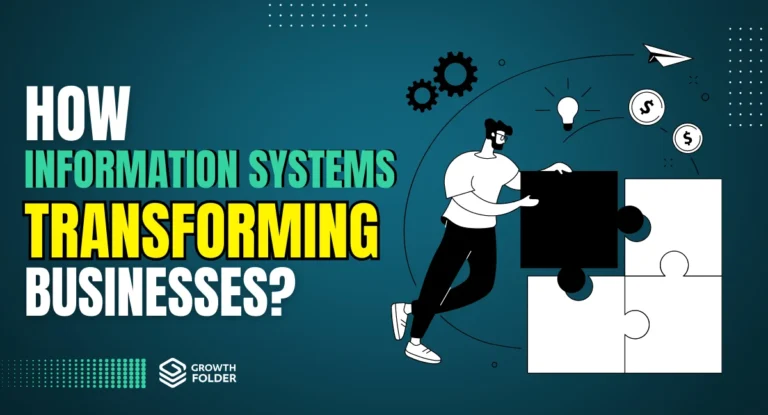
The world of the internet is evolving at a much faster rate than ever. And so does the importance of digital content.
Gone are the days when your only way out is to display posters of your brand. Today’s poster boy is Google!
Google has both the capacity & capability to skyrocket your business beyond your imagination. Google always pushes content that provides value to the people. And this is exactly how content marketing drives sales and revenue to your business.
What is Content Marketing?

Content marketing is a strategy that involves creating and distributing valuable, relevant, and consistent content to attract and retain a clearly defined audience, with the aim of driving profitable customer action.
Content marketing is often used by businesses as a way to educate their target audience about their products or services, establish thought leadership in their industry, and build trust and credibility with their customers.
The content can be in various forms, such as blog posts, videos, podcasts, infographics, case studies, and more, and it can be distributed through multiple channels, such as a company website, social media platforms, email, or other online platforms.
What is Content Marketing Strategy?
A content marketing strategy is a plan that outlines the goals, target audience, budget, and tactics for creating and distributing valuable, relevant, and consistent content.
It is designed to help businesses attract and retain customers by consistently providing them with valuable information that addresses their needs and interests.
A content marketing strategy usually includes a mix of different types of content, such as blog posts, social media updates, videos, ebooks, and infographics, that are designed to educate, entertain, and engage the target audience.
The goal of a content marketing strategy is to build trust and credibility with the target audience, establish thought leadership in the industry, and drive profitable customer action.
In recent years, content marketing has become an increasingly popular way for businesses to drive sales and revenues.
How Content Marketing Drives Sales?
Exactly how content marketing drives sales and revenues? Let us explore the various ways in which content marketing can contribute to the success of a business.
✅ Establishing trust and credibility with customers
One of the primary ways that content marketing drives sales and revenues is by establishing trust and credibility with customers.
By consistently creating and distributing high-quality content that addresses the needs and interests of your target audience, you can demonstrate your expertise and establish yourself as a thought leader in your industry.
This can help to build trust and credibility with your audience, which can ultimately lead to increased sales and revenues.
For example, if you run a software company and you consistently publish blog posts that provide valuable tips and insights on how to use your software more effectively, your audience will come to see you as a trusted resource and may be more likely to purchase your software as a result.
✅ Generating leads and conversions
Another way that content marketing drives sales and revenues is by generating leads and conversions. By creating content that addresses the needs and interests of your target audience, you can attract potential customers to your website and social media channels.
This can then lead to increased conversions, as visitors are more likely to take the desired action (such as filling out a form or making a purchase) if they feel that the content they are consuming is valuable and relevant.
For example, if you run an e-commerce store and you consistently publish blog posts that showcase your products and provide tips on how to use them, your audience may be more likely to visit your store and make a purchase.
✅ Improving search engine ranking
Content marketing can also drive sales and revenues by improving your search engine ranking. By consistently creating and distributing high-quality, keyword-rich content, you can increase the chances that your website will rank higher in the search engine results pages (SERPs). This, in turn, can lead to increased traffic and sales as more potential customers are able to discover your business online.
For example, suppose you run a B2B company and consistently publish blog posts that provide valuable insights and solutions to common problems faced by your target audience. In that case, you may rank highly in SERPs for keywords related to your industry, which can lead to increased traffic and sales.
✅ Enhancing brand awareness and loyalty
Content marketing can also drive sales and revenues by enhancing brand awareness and loyalty. By consistently creating and distributing high-quality content that aligns with your brand values and messaging, you can increase the chances that your audience will remember and recognize your brand. This, in turn, can lead to increased sales and revenues as customers are more likely to choose your brand over competitors.
For example, if you run a fitness company and you consistently publish blog posts that provide valuable tips and insights on how to live a healthy lifestyle, your audience may come to see you as a trusted resource and may be more likely to purchase your products as a result.
✅ Nurtures leads and builds relationships
Content marketing can also be used to nurture leads and build relationships with potential customers.
For example, if you run a marketing agency, you might publish ebooks or webinars on topics like developing a marketing strategy, creating effective campaigns, and measuring the success of marketing efforts.
By providing valuable information and resources like this, you can help move leads through the sales funnel and closer to making a purchase.
By consistently creating and sharing valuable content, you can establish a strong relationship with your audience, which can lead to increased loyalty and repeat business, resulting in higher sales and revenue.
✅ Reaching a Wider Audience Through Distribution Channels
One of the key benefits of content marketing is that it allows you to reach a wider audience through the use of various distribution channels. This includes social media, email marketing, and other forms of digital marketing.
By leveraging these channels, you can reach a larger number of potential customers and drive more sales and revenue.
How to create an effective content marketing strategy?
Here are some steps you can follow to create an effective content marketing strategy:
Top Insanely Useful Content Marketing Tools and How to Use Them?
Here are some top insanely useful content marketing tools and how to use them:
✓ BuzzSumo
This tool allows you to discover popular content in your industry and analyze its performance. You can use it to identify content trends, find influencers to collaborate with, and see what content is performing well on social media.
✓ CoSchedule Headline Analyzer
This tool helps you optimize your headlines for maximum impact and engagement. Simply enter your headline and it will give you a score based on factors like length, word choice, and emotional impact.
✓ Hootsuite
This social media management platform allows you to schedule and publish social media updates, engage with followers, and track the performance of your social media campaigns.
✓ Canva
This graphic design tool allows you to create professional-looking graphics, such as infographics, social media posts, and presentations. It has a wide range of templates and tools to make the design process easy and efficient.
✓ Grammarly
This writing tool helps you improve the clarity and effectiveness of your writing by checking for grammar and spelling mistakes, as well as providing suggestions for improvement.
✓ Ahrefs
This SEO tool allows you to track your website’s performance, identify high-performing keywords, and analyze your competitors’ SEO strategies.
✓ Google Analytics
This tool allows you to track and analyze the traffic and performance of your website. You can use it to see how your content is performing, identify areas for improvement, and measure the effectiveness of your content marketing campaigns.
✓ Mailchimp
This email marketing tool allows you to create and send newsletters, automated email campaigns, and other marketing emails to your subscribers. It has a range of templates and tools to make the process of creating and sending emails easy and efficient.
Conclusion
In conclusion, content marketing is a powerful tool for driving sales and revenues. By establishing trust and credibility with customers, generating leads and conversions, improving search engine ranking, and enhancing brand awareness and loyalty, content marketing can contribute significantly to the success of a business.
By consistently creating and distributing high-quality, valuable, and relevant content, businesses can reach and engage their target audience and ultimately drive sales and revenues.






